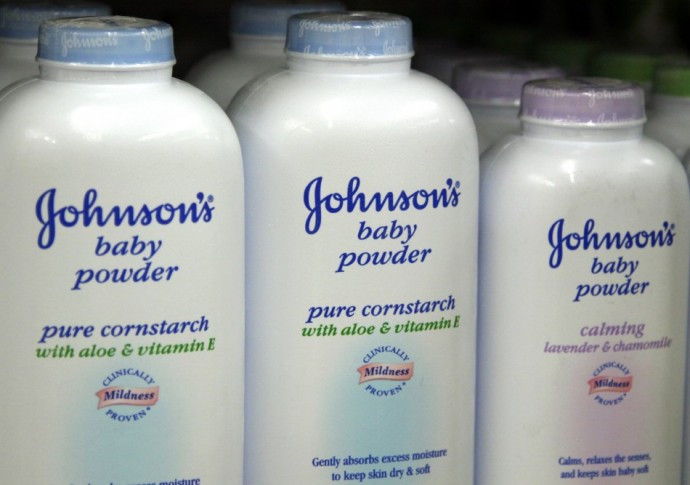Cambridge professor says talcum powder possibly raises risk of ovarian cancer

After Johnson & Johnson was made to pay nearly £51m to the family of a woman who claimed baby powder led to her ovarian cancer, a Cambridge University professor has offered his insights into the risks of using talcum powder. Paul Pharoah, the Professor of Cancer Epidemiology at Cambridge has said that it is 'biologically plausible' for talcum powder to contribute towards ovarian cancer.
According to Prof. Pharoah, talcum powder grains can possibly enter the fallopian tubes causing inflammation in the ovaries, which can eventually lead to ovarian cancer. Despite the minimal risk, Prof. Pharoah said talcum powder can possibly raise the risk levels.
"The association is biologically plausible. Talcum powder applied to the genital area might get into the fallopian tubes and onto the ovaries and cause inflammation, which in turn could cause ovarian cancer," said Prof. Pharaoh. "On balance, I think that it is more likely than not that there is an association between genital talc use and risk of some types of ovarian cancer."
Despite the risks, Prof. Pharoah does not see a case similar to the lawsuit involving Johnson & Johnson happening in the UK. "Even if the association were true, the strength of the association is too small to be able to say on the balance of probabilities that any cancer arising in a woman who used talc had been caused by the talc," said Prof. Pharoah, reported The Telegraph.
"It's important to remember the size of the possible risk – a 20 year old woman in the UK has a risk of getting ovarian cancer at some point in her life of 18 in a thousand; a 20 per cent increase in this risk would raise this to 22 in a thousand."
Earlier a jury in St. Louis, Missouri, ordered the pharmaceutical giant Johnson & Johnson to pay $72m (£51m) to the family of a woman who claimed her ovarian cancer was triggered by the talcum powder. According to the jury, the manufacturer failed to warn the users on the possible risks of using talcum powder.
Jackie Fox who died of ovarian cancer in 2015 had been using the company's baby powder for nearly 35 years before being diagnosed with ovarian cancer. Since the lawsuits started emerging, most talcum powder companies in the US have since switched to using cornstarch instead.
Yet despite warnings raised by the American Cancer Society in 1999, talcum powder is still commonly used in the UK. "If something truly causes cancer, you would expect people who are exposed to more of that thing to have a higher risk," said Cancer Research UK. "For example, the more you smoke, the higher your risk of lung cancer. But the majority of the studies have not found a similar relationship for talc use and ovarian cancer."
© Copyright IBTimes 2025. All rights reserved.




















